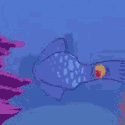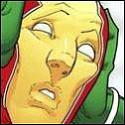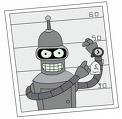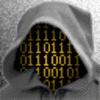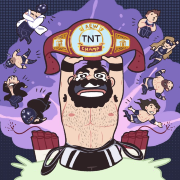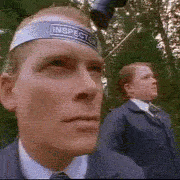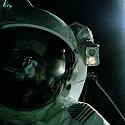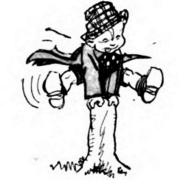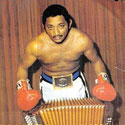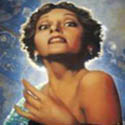|
Just finished snow crash. I had picked it up for $3 a while ago, and had read just the very beginning, and didn't really like it too much. Then two days ago I picked it up again, and read it more or less constantly in my free time. Very good book.
|
|
|
|

|
| # ? May 14, 2024 04:03 |
|
Just finished Mrs Dalloway. Moving on to A Bitter Revolution by Rana Mitter. (USER WAS PUT ON PROBATION FOR THIS POST)
|
|
|
|
Just finished The Casebook of Victor Frankenstein by Peter Ackroyd, a retelling of Mary Shelly's classic that ultimately fails to be interesting. It's hard to work out if this book is Ackroyd seriously attempting to write a novel in the gothic style or simply a parody of it. As the narrator, Frankenstein's voice is shallow and poorly defined, as are the bulk of the supporting cast (which include Mary Shelly herself, Percy Shelly, Byron and Polidori). The book starts well and initially moves at a decent pace. Ackroyd's love affair with London shines through and gives the novel a very real sense of time and place. However the plot quickly falls flat on it's arse. You can almost pinpoint the page where Ackroyd thinks "right, let's just get this finished with". And boy does he finish it in the worst conceivable way possible. Avoid, even if (especially if) you're the most ardent fan of Frankenstein.
|
|
|
|
Just finished Breakfast of Champions, by Kurt Vonnegut, due to all the goon hype. It was pretty funny, there were a lot of great quotes from that book. The only thing I wish he had done differently is focus more on what happened after Dwayne meets Trout and goes ape poo poo. He kind of just hurt those people, then that was it. With all the build-up to it, it was kind of anticlimactic, especially considering Vonnegut himself spoils the ending before he gets to it, which I thought was kind of
|
|
|
|
Just finished The Road. McCarthy is a sadistic, sadistic motherfucker in this. There are a few instances where he just abruptly stops telling the story for a passage or two just so he can tell you how empty and meaningless life is. Regardless, the book was written so beautifully I welcomed the depression.
|
|
|
|
I just finished Silverthron, the 3rd book in the Riftwar Saga by Raymond Feist. It would appear that Feist has done *several* series involving his world of Midkemia and Kelewan, but in no real discernable order. I'd like to ask anyone that's read Feist to help me out. I'm going to pick up A Darkness at Sethanon (the fourth and I guess final book) this weekend so I can finish up the riftwar saga. After that, I noticed The Riftwar Legacy and Legends of the Riftwar. Does anyone know if those two stand alone series have anything to do with the Riftwar Saga, or are they just a stand alone series? Feist writes well enough for my simple fantasy oriented mind, so I'd really like to read more of his stuff, I just can't tell where to pick up after I'm done with the riftwar saga.
|
|
|
|
Finally finished Wuthering Heights, by Emily Bronte, about a year and a half after I started it. I read the first half of it previously and then just stopped reading it for a while, but the other day I decided to take a halfway-point break in Infinite Jest to finally finish this. I'm very glad I did, and I don't know what made me take so long - it's an excellent book. Emily Bronte's prose is really top notch, and the book almost reminds me of a slightly more modern version of a Shakespeare play: Lots of long monologues with very flowing language and fairly extreme characters. Heathcliff in particular is an incredibly intense character. I highly recommend it for anybody who hasn't given it a read yet, it's well worth the time. Now, back to Infinite Jest to see if I can finish that behemoth before school starts up.
|
|
|
|
On the note of Breakfast of Champions: I've been trying to go back and chronologically read all the Vonnegut novels I haven't gotten to yet. Player Piano, I felt, was absolutely insane as a first published attempt. He paints a disturbingly feasible picture of a highly automatized tomorrow, working with the simple 50's punch card technology of his age. It really got me thinking about the political and social ramifications of a newly automated society, which he painstaking explores with incredible depth and biting pessimism. Engineers and techies: make this your bible. The premise of The Sirens of Titan at first didn't really seem too interesting, but it eventually picked up to the point that I had a hard time putting the book down. The time anomaly Vonnegut invented for the main plot progression ended up not being nearly so interesting as the way he makes everything in general fit together like clockwork--that is, the way that he accounts for all the empires of human society as a cruel engineering system to help out one single little stranded alien bot. The change of direction blew my mind. An intriguing story for you determinists out there. Lastly, Mother Night was a lightning fast read with some emotionally gripping stuff. I was familiar with the philosophy he referenced in some of his other works, that "we are who we pretend to be," but this one actually made a lot of sense out of it. It was a refreshing step away from the sci-fi element of the previous novels, and it was really interesting to get directly into the head of someone doing something so hosed up. (When his intentions were so sound) I enjoyed them all quite a bit, but Player Piano was a hell of a thrill; makes me aspire to much greater heights of writing and storytelling. So it goes. Onward to God Bless You, Mr. Rosewater.
|
|
|
|
Worst Enemy posted:An intriguing story for you determinists out there. Ah, Vonnegut. Gotta love him. I intend to reread more if his stuff because it's been over thirty years for some of it.
|
|
|
|
Wrojin posted:Then there's Cat's Cradle where it's revealed that humans were invented by water to carry it from place to place I read that forever ago and don't remember that at all. Once I'm done with Dumas I'm going to have to re-read some Vonnegut.
|
|
|
|
Finally got around to going to the library and picked up a stack of books. Got a nice little mix of literary fiction and some genre stuff, so I just ripped through Brimstone by Robert B. Parker - the third book in his series about two itinerant lawmen in the old West. Parker's not an amazing writer by any means but the books are entertaining pageturners and the long-running wordplay gag is amusing.Double Tap posted:I just finished Silverthron, the 3rd book in the Riftwar Saga by Raymond Feist. It would appear that Feist has done *several* series involving his world of Midkemia and Kelewan, but in no real discernable order. I never read Legends of the Riftwar but what I read of Riftwar Legacy was pretty crappy even for Feist - I'd skip it unless you absolutely have to read it. I remember Feist's The Serpentwar Saga was pretty decent, as is the Conclave of Shadows trilogy. They're both set in Midkemia but are more or less stand-alone, especially Conclave. There's also the two stand-alone Midkemia novels Prince of the Blood and The King's Buccaneer if you're looking for more. And finally he also co-wrote the Empire trilogy which is set in Kelewan - Pug and a few other characters from the Riftwar series make appearances at certain points. I'd say this is probably the best of the Riftwar-related books but then again I always thought Feist was better when he stuck to more "realistic" stuff as opposed to poo poo like Pug battling interdimensional evil or whatever the gently caress. Encryptic fucked around with this message at 05:35 on Aug 22, 2009 |
|
|
|
Worst Enemy posted:Onward to God Bless You, Mr. Rosewater. I remember when he graded all his books, that one was I think the one he rated the highest. It's also the one you hear very little buzz about. Definitely on my to-read list.
|
|
|
|
Pompous Rhombus posted:I remember when he graded all his books, that one was I think the one he rated the highest. It's also the one you hear very little buzz about. Definitely on my to-read list. Here's the list: quote:In Chapter 18 of his book Palm Sunday, "The Sexual Revolution", Vonnegut grades his own works. He states that the grades "do not place me in literary history" and that he is comparing "myself with myself." The grades are as follows:
|
|
|
|
Grave Goods by Ariana Franklin - The third in a series of historical mysteries set in England during the time of Henry II; sort of a watered-down version of The Name of the Rose with less philosophical/theological talk and more focus on solving murders via the medieval version of forensics. They're entertaining with some good period detail to add versimilitude. Liked this one a bit better than the previous book in the series, though the plot does feel a bit forced at points. I've gotten the itch for lighter genre reading out of my system for the moment so I'm digging into Jonatham Lethem's The Fortress of Solitude.
|
|
|
|
Dacap posted:Here's the list: I can understand why he graded Slapstick so low since (while good) the book is mostly retreading territory he's already explored.
|
|
|
|
Just finished Mr. Shivers by our very own Robert Jackson Bennett. While at the bookstore today, I cracked open The Magicians (by Lev Grossman) to see if I would like it and blazed through the first 80 pages. Didn't purchase it yet, but probably will soon. I couldn't put it down. Back at home I'll probably start reading And Then There Were None by Agatha Christie.
|
|
|
|
I just finished My Father's Tears and Other Stories by John Updike, and really enjoyed it. I think I like Updike's short stories even more than his full-length works. I also finished Wittgenstein in 90 Minutes by Paul Strathern. I wanted to read this before I launch into two of Wittgenstein's publications, the Tractatus Logico-Philosophicus and then the Philosophical Investigations. Even if Strathern's little volume contained within it no information which will be of help insofar as content is concerned, it was a good read and it made me feel ready to take them on.
|
|
|
|
Just finished Zoe's Tale by John Scalzi, a novel set in his Old Man's War universe, which is just The Last Colony retold from Zoe Boutin-Perry's perspective. It contained pretty much all the hallmarks of his work, fun, easy, never really taking itself too seriously, but it lacked the military sci-fi that made the others much more pleasing to me. It's still a good distraction though, especially if you like his other works.
|
|
|
|
Map of Bones by James Rollins - Gray Pierce is the lead operative at SIGMA, a covert government agency that makes the CIA look like a bunch of pansies. He and his team of specialists are in a race against time to decipher ancient clues to a treasure that could destroy the world if acquired by the deadly Dragon Court. It's all standard treasure hunting fare, done countless times by Rollins, Dan Brown, Clive Cussler, and probably a few of your relatives. To say that this one is a DaVinci Code ripoff is asinine, considering Dan Brown's novel is itself derivative of many books before it. As long as they are well written I enjoy treasure hunting books for what they are. In this case, Map of Bones, it IS written very well and even has the bonus of having solid characters. It's a non-stop thriller that traverses the globe, offering quite a bit of history, mostly based on real concepts, but all no doubt embellished into oblivion for the sake of the story. Through the course of the book, puzzles are contemplated and solved far too conveniently, just like in the DaVinci Code. Similarly, heroes get themselves in tight spots with very little suspense of whether or not they will survive, because they always do in these kind of books! Regardless, there is a certain comfort in knowing that your hero is about to kick some rear end and really show that ruthless bad guy what time it is. Cheesy, I know, but that's why we read these books. I loved it - great summer adventure book, interesting historical perspective, and fun well thought out characters. I highly recommend it.
|
|
|
|
I just finished We Need to Talk About Kevin by Lionel Shriver about a fictional mass-murder school shooting. It's really interestingly written in the second person, as a series of letters to Kevin's father, Franklin. (That counts as second person, right?) It was the first book I've read that made me cry since Where the Red Fern Grows in middle school.
|
|
|
|
just finished The Road. i liked it quite a bit, but i feel like you could jumble up any of the events in the first 3/4 of the book without really affecting the story. get hungry, get scared, find food. rinse and repeat. but, it did keep me entertained somehow and i did enjoy it. Inspector 34 fucked around with this message at 05:00 on Aug 25, 2009 |
|
|
|
The Fortress of Solitude by Jonathan Lethem - An interesting read about two friends growing up in 1970s Brooklyn before splitting off on their own paths. There's a lot I really dug about FoS - the prose, the portrayal of growing up in that time and place, though I feel like the second half loses what made the first half so compelling. However, the end ties it together pretty well. It's definitely an ambitious novel and Lethem is a great writer but just didn't quite hit the mark he was shooting for, IMHO.
|
|
|
|
Just finished The Crossing by Cormac McCarthy. I didn't read the rest of the Border Trilogy, but from what I hear I didn't need to. Goddamn was this book depressing. Without spoiling any plot, this book reads like the trials of Job but without any happy resolutions.
|
|
|
|
Apparently I've been slacking with my reviews, I've read something like a dozen! So here we go: Harry Potter & The Deathly Hallows, J. K. Rowling The final installment of the Harry Potter series was also the best, because there was little to no Hogwarts drama bullshit. Instead we got an almost compelling tale of life on the lamb, and Harry and friends actually taking matters into their own hands during what amounts to wartime. Why all this magic and wizarding stuff is still hush-hush don't let the normals know when the biggest Wizarding Supremacist is in control of the country I couldn't tell you. The final showdown approaches interesting, and the various ties between Harry and Voldemort are intriguing. I bet you could write a pretty good story with the concepts. Porno, Irvine Welsh Sequel to Trainspotting, but not quite as good. Still fun to read, but needs more Renton and less Sick Boy. The ending, with Renton taking the money and running, again was knee slappingly hilarious. Swords Against Death, Swords in the Mist, Fritz Leiber Continuing on in the Lahnkmar series. Good stories here, our heroes confronting Death on the western continent, an eeiry mind controlling mist causes chaos in the city, a "possession" of Fafhrd by a minor god, and a trip to the undersea King's lair. Awesome wish fulfillment stuff for D&D nerds. The Jungle, by Upton Sinclair. The story of a fictional immigrant family who comes to Chicago from Lithuania and gets wrung through the meat packing machine. After a country song series of events the protagonist discovers the solution to all man's ills: Socialism. The story is almost unbelievably bleak at times (the drowning of Jurgis' son) and the ending is extremely heavy handed. The book is more propaganda than anything else. The Original Illustrated Sherlock Holmes, Arthur Conan Doyle A collection of most of Doyle's Sherlock Holmes stories, and the novel Hound of the Baskervilles, the illustrations that appeared in the Strand magazine when they were originally published. Holmes stories are entertaining enough when you can see past the cliches they spawned, but that's difficult at times. Still, it's fun trying to pick out clues and try to solve the mystery before Holmes and the criminal describe it at the end. The Chronicles of Master Li & Number Ten Ox, Barry Hughart You might be tempted to include this in the D&D nerd genre, and for the most part it fits there. But it's set in China, and includes some elements of detective stories, and reads a bit like Douglas Adams. It's a shame the author only wrote three books in the series (of which this is the omnibus). Really really fun. Candide, Voltare The eternal optimist in the face of the worst series of unfortunate events and he still comes out believing this is the best of all possible worlds. Hilarious in a way you'd never expect 18th century french writing could be. The Stranger, Albert Camus Another really short novel, about a guy who ends up murdering a stranger. Reminded me a lot of Native Son, only much more condensed. Ringworld's Children, Larry Niven Slightly better than the last book in the series, The Ringworld Throne, but nowhere near the greatness of the original novel. Still fun, and it gives a little more insight into who built the Ringworld and. The climax, moving the ringworld and its star! was a little underdone and could have been described better. Your Next Door Neighbor is a Dragon, Zack Parsons SA's very own elipintogrande's latest. Contains chapters on furries, otherkin, fanfic, and more. The internet harbors some very VERY weird people. I want a superbible so I can superworship SuperGod.
|
|
|
|
LooseChanj posted:The Jungle, by Upton Sinclair. I read this book a few years ago. Apparently, the ending Upton originally wanted had Jurgis Rudkus arrested for murder at the end of his big Socialist rally. I always thought that make a better conclusion. I read most of it in an airport, so I remember eating a giant hamburger in the terminal during a lot of it.
|
|
|
|
I finished American Psycho by Bret Easton Ellis last night - and, well, it ended as it began: a bunch of vapid, useless rich fucks worried more about their looks and restaurant reservations than anything else. I have a love/hate with Ellis' writing style in AP, because I really enjoyed the parts where Bateman was having panic attacks/coming off of a drug-induced high - because that's where Ellis really shined. Also - it was about the only place in the novel where any actual characterization takes place. But then again, I hated most of the dialog sequences, as they felt dry, boring and repetitive (maybe that was Ellis' entire point?) - though I did chuckle at some of Bateman's completely off-the-wall questions and statements he would interject into them. Another thing I noticed was that depending on how frantic a scene was - it seemed like Ellis' writing style adjusted for it - the parts where Bateman was struggling to keep his sanity, a lot of the events seemed jumbled and one-after-another, but whenever he was sitting with co-workers at some trendy bar, it shifted into a calmer, more confident writing style. And, I must admit, some of the gorier scenes in the novel were hard for me to sit through - a lot of them made me think "really, did he really go that far?" All-in-all, I enjoyed it, but not as much as I was expecting to.
|
|
|
|
Pompous Rhombus posted:I remember when he graded all his books, that one was I think the one he rated the highest. It's also the one you hear very little buzz about. Definitely on my to-read list. God Bless You Mr. Rosewater, which I just recommend to a friend only days ago at a bookstore, is by far his most haunting novel. Mother Night felt uplifting compared to GBYMR, and his perspective on wealth, charity, and selflessness make you realize what a brilliant and cynical bastard he was.
|
|
|
|
The God Delusion-book by British biologist Richard Dawkins very good read highly recommend. Dawkins contends that a supernatural creator almost certainly does not exist and that belief in a personal god qualifies as a delusion, which he defines as a persistent false belief held in the face of strong contradictory evidence.
|
|
|
|
In The Land of Invented Languages by Arika Okrent. Okrent, a degree-holding linguist, gives us an overview of the long history of constructed languages, giving a fair treatment to some notable failures (including a few conditional successes). She takes a hands-on approach to the languages that still exist in the wild, so in the process of researching the subject, she attends some Esperanto functions, gets a first-level certification in Klingon, and almost forgets how English works thanks to the magic of Lojban. As someone who's spent the past few years sniffing around the edges of Esperanto (fina venko, buddy), I'm a bit of a partisan, but the book was well worth the time. In the process of finding out what works (or doesn't) about the constructed languages, we get a lot of information on how natural languages work. And in spite of that, it was still a fun read which only rarely carried a whiff of the classroom. My favorite part was the weird, sad history of Blissymbols, which actually found a real-world therapeutic use, but was almost ruined by the language's inventor when it didn't match his idea of success.
|
|
|
|
Reread of Gogol's Dead Souls, which remains as awesome as ever. Admittedly it does suffer from the old short story specialist turned novel writer syndrome to some extent, but you can't stay mad at him. It takes a special kind of genius after all to have such flagrant disregard for your own literary dignity; who else would think to interrupt their story to complain about the woodenness of their own female characters and their overly-litigious readership? quote:The author is in the greatest perplexity how to name the two ladies in such a way that people do not get angry with him again, as they used to in olden times. To refer to them by fictitious names is dangerous. Whatever name one comes up with, there is sure to be found in some corner of our state, given its greatness, someone who bears that name and who is sure to get mortally angry and start saying that the author came secretly with the purpose of ferreting out everything about who he was, what kind of woolly coat he went around in, and what Agrafena Ivanova he came calling on, and upon what food he liked to dine. To refer to them by their ranks, God forbid, is even more dangerous. Our ranks and estates are so irritated these days that they take personally whatever appears in printed books: such, evidently, is the mood in the air. It is enough simply to say that there is a stupid man in a certain town, and it already becomes personal: suddenly a gentleman of respectable appearance pops up and shouts: "But I, too, am a man, which means that I, too, am stupid" - in short, he instantly grasps the situation. Also Pages from the Goncourt Journals which is a selection of entries taken from something like 40 years worth of journals kept by the Goncourt brothers. They were fairly well entrenched in Parisian literary society in the last half of the 19th century, so Flaubert, Zola, Daudet, De Nerval, Hugo, Huysmans, and the like make frequent appearances. As narcissitic as they were, the Goncourts devoted a hell of a lot of time and effort to following the lives of the people around them; you After enjoying the others too much I did my penance with William Gass' dreary short story collection In the Heart of the Heart of the Country. I admire Gass as a critic, but I've been fairly ambivalent about his own fiction (though Omensetter's Luck was good, if a little austere), and these really did nothing to bring me around - I don't think I've ever seen such obsessively overpolished writing. You know that thing where you work on something and it's great and you improve a spot here and there, then look again and somewhere along the line you added one touch too many and it all went to hell? That's more or less the feeling here. Aside from that the pieces are chained down by debts to folks who are stylistically very distinct and recognisable writers - Faulkner and Elkin in particular. Not so sure these couldn't have stayed in the writer's drawer. Last but not least, Nicholas Mosley's Hopeful Monsters which dredges up the novel of ideas and lets it loose on the period between the wars. Imagine Thomas Mann trying to cram the intellectual and political history of the '20s and '30s into 500+ pages. It's so ridiculously ambitious in scope, it's a minor miracle it's not totally incoherent. The two main characters seperately stumble through almost every development from genetics to nuclear physics to psychoanalysis to Weimar politics leading into Nazism and the Spanish Civil War, a spot of anthropology in West Africa, German literature and theatre, a touch of Wittgenstein, dash of religion, class struggle, the Jewish identity, etc, etc. And yet I'm telling you: it is not poo poo. In fact, it's rather good. If you have a problem with introspective characters, or prefer your star-crossed romance without the pop-historical-psychological-scientific-baggage, sure, it'll probably drive you crazy, but otherwise definitely worth a look.
|
|
|
|
I read The Likeness by Tana French over both directions of cross-country flights this past weekend and loved it every bit as much as I thought I would. Somehow I always end up reading Tana French on the airplane. Anyhow, while I thought the actual construction of the murder in In the Woods was more interesting, the investigation as a whole was far more unusual (duh) and neat in The Likeness. Also didn't get nearly so annoyed by the choices the main characters made in The Likeness (at least in the end). I wanted to scream at Rob and throw the book at him some thousand times in In the Woods.
|
|
|
|
Just finished And Then There Were None by Agatha Christie. Somehow I went all these years never having the ending spoiled for me so it was a complete surprise. I didn't care for the whole reveal in a letter of the final chapter, but it did a good job of making me want to read more mysteries, so that's something. Any recommendations for the next mystery I should read? Going to start Neverwhere by Neil Gaiman tomorrow.
|
|
|
|
I just picked up started, and then finished more quickly than I would have liked, Lev Grossman's The Magicians (mostly on the strength of the excellent review it was given in the Onion AV Club and then the interview with Grossman there). I'm still sorting out my thoughts about it, but it was really good, much better and more interesting than the initial concept (some kid from Brooklyn going to study magic at a magicians college in Upstate New York) would have suggested. One of Grossman's basic ideas -- that a kid in the real world in such a situation probably would have grown up on Tolkien, Narnia, D&D and (now) Harry Potter and react to fantastic situations based on that background -- doesn't seem all that surprising when you think about it, but he does some interesting stuff with the idea.
|
|
|
|
I finished Steven Millhauser's The Barnum Museum the other day. Amazing collection of stories (very Borges). Eisenheim the Illusionist is the basis for The Illusionist and about a thousand times better than the movie.
|
|
|
|
I'm working my way through the recommendation list and therefore just finished Perdido street station. Good stuff but it wasn't really what I expected. It was more of a steam fantasy novel then I expected. Well it was a good read anyway.
|
|
|
|
I just finished David Simon's Homicide. I've never seen the show, but I'm a big fan of The Wire so I'm familiar with Simon and some of people behind those characters (i.e. Landsman). The book was great, very intense, completely captivating. I also didn't realize before I read it that it took place in the 80's so it's already pretty dated in terms of the technology when it comes up. In any case, definitely a very good read and I plan to pick up The Corner soon.
|
|
|
|
Finished Born Round: The Secret history of a full-time eater by Frank Bruni. Disappointed that he just barely talked about his job as the NY Times restaurant critic. I mean, that is what he is now know for.
|
|
|
|
Defecting to Nine posted:Finished Born Round: The Secret history of a full-time eater by Frank Bruni. Disappointed that he just barely talked about his job as the NY Times restaurant critic. I mean, that is what he is now know for. What the hell was the book about if it's titled "The Secret History of a Full-Time Eater", if not his job as the NY Times restaurant critic?
|
|
|
|
I just finished Gabriel Garcia Marquez's One Hundred Years of Solitude. At first, I liked it because of the odd distance the narrator took: it was at a median distance so we didn't know every single detail about every character, but it also wasn't too far removed that we didn't get to know what's going on with this ridiculous family. I honestly disliked the majority of it, perhaps because I didn't really care about what happened to the family (not to mention the confusion with the names). However, I loved the last 100 pages. Everything from Remedios the Beauty's life and eventual "death" up until the very end just struck me for some reason I haven't figured out yet. I plan on finishing Kevin Brockmeier's Seven Layers of Heaven, then on to Jose Saramago's All the Names.
|
|
|
|

|
| # ? May 14, 2024 04:03 |
|
Just finished Ten Days that Shook the World, by Jack Reed. It amounts to on the scene press coverage of the 1917 Bolshevik revolution in Russia. This certainly has its limitations: it's not as thorough as a history, historians (and Stalin) took issue with Reed's account, and he is a fierce partisan. Yet for all that Reed conveys very effectively the excitement of participating in an unfolding drama that reshaped Russia and the world; the difficult military, social and political circumstances they key players were reacting to and refused to tolerate; and how uncertain it all was and their courage and dynamism in making the change they sought happen. Well worth a read.
|
|
|



